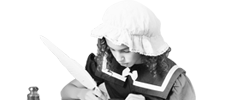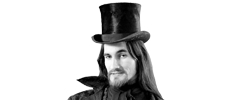‘Lancaster’s Catholic Martyrs’ by Christine Goodier MA
During the period 1584-1646 fifteen Catholics were executed in Lancaster for their faith. The law at this time made it illegal to convert or be converted to Catholicism, to say or hear Mass or to help or conceal the presence of a priest.To be a priest ordained abroad was classed as treason.
Queen Elizabeth I had been declared a heretic and excommunicated by the Pope in 1570 and from then on English Catholics were seen as a dangerous ‘fifth column’- people whose loyalties were divided between the Crown and the See of Rome. In fact, the vast majority of English Catholics, many of whom lived in Lancashire, remained staunchly loyal to the throne. Despite the danger, many young men went to Europe to train for ‘The English Mission’ as it became known. Returning to England these priests would have spent their time, for the most part, moving clandestinely from house to house, often forced to hide for days in tiny spaces built for the purpose and known as Priest Holes while government agents searched for them. These men, and the lay-people who helped them, fully understood that they could expect little clemency from the courts if they were captured.The law reserved its harshest penalties for those convicted of treason. In this case, priests were hanged, drawn and quartered, while laymen were executed by hanging.
Blessed James Bell (d 1584)
Bell was born in Warrington and became a priest during the reign of Queen Mary but conformed under Elizabeth and served as an Anglican minister for 20 years. He returned to Lancashire in 1579 and was reconciled to the Faith in 1581. In January 1584, he was arrested and taken to Manchester, then brought to Lancaster for trial. He was executed on 10th April 1584.
Blessed John Finch (d 1584)
John Finch was a yeoman farmer from Eccleston, near Chorley. He was raised a Protestant but after his conversion he helped to conceal priests in his home and to act as their guide about the county. He was betrayed while on such a mission and was arrested by the Earl of Derby. He was tortured and then spent three years in prison before coming to trial at Lancaster. He was executed on the same day as Bell.
Blessed Robert Nutter (1557-1600)
Fr Robert Nutter, who came from Burnley, was sent to the Tower of London after his arrest in 1584 along with his brother, who was also a priest. Both were savagely tortured, and Robert had to witness his brother’s execution before he was himself allowed to leave the country. Despite this he returned at the end of 1585 and, after being captured once more, spent the next twelve years in prison at Wisbech. He managed to escape in 1600 but was re-arrested. He was executed in Lancaster on 26th July 1600.
Blessed Edward Thwing (1565-1600)
Thwing came from Heworth, near York and studied at Rheims, being ordained in 1590. Although in poor health he came to England and worked in Lancashire for three years before his arrest. He was executed alongside Robert Nutter – ‘this little severity’ as one Justice of the Peace described it.
Blessed Thurstan Hunt (1555-1601)
Fr Hunt worked in the North undetected for 15 years, using the name Robert Greenlowe. In September 1600 he was captured after a failed attempt to free his co-priest Robert Middleton who was being taken to Lancaster for trial. Both men were sent to London as it seems that Hunt had somehow got wind of the forthcoming Essex Rebellion. An open letter was found on his person warning the Queen of the plot. Despite (or perhaps because of) this he and Middleton were sent back to Lancaster in some haste – ‘their legs tied under the belly of their horse and their hands behind them’. They were executed on 3rd April 1601.
Blessed Robert Middleton (1571-1601)
Middleton came from York and was raised a Protestant. He converted in his teens and went abroad to study for the priesthood. His sister was present at his execution and offered £100 for his life and for him to talk to a minister in the hope of re-converting him. He reproached her and refused all attempts to sway him from his faith.
Venerable Lawrence Bailey (d.1604)
Bailey was one of the lay-people who assisted the priests in their mission. He was captured in September 1604 after helping a priest to escape arrest. He was hanged on 16 th September 1604.
Blessed John Thules (1568-1616), Blessed Roger Wrenno (1578-1616)
Fr JohnThules was arrested at the house of Roger Wrenno, a ‘poor weaver’ from Chorley. They managed to escape from Lancaster Castle, but after walking all night they found that they had been going in circles and were still within sight of their prison. Recaptured and condemned, they were offered their lives if they would recant their faith. Both refused. The first attempt to hang Wrenno failed when the rope broke. Seeing this as divine intervention, the Sheriff said to him ‘It is God’s will thou shouldst not die; take the oath therefore and be a good subject and the King will show mercy’. Wrenno replied, ‘If you had seen that which I have just now seen, you would be as much in haste to die as I now am’. He quickly mounted the scaffold again and was hanged.
Saint Father Edward Arrowsmith (1585-1628)
A native of Haydock, Edmund Arrowsmith entered the seminary at Douai when he was 20 and was ordained in 1611. In the summer of 1628, he was betrayed by a Catholic man named Holden who was the son of the landlord of the Blue Anchor Inn at Brindle. At his trial he had the misfortune to come before the Puritan judge, Sir Henry Yelverton, who accused him outright of being a priest and tried to trap him into admitting it. This was important as there was very little other evidence against him. Eventually Edmund was found guilty and the judge ordered him held in irons in the worst cell in the Castle until his execution.
This was a tiny cell known as The Smoothing Iron, which may well be what we can see today in Hadrian’s Tower. No-one could be found to carry out the execution until, finally, a deserter, himself under sentence of death, volunteered in return for his liberty and 40/-. Edmund suffered the full rigour of the law but one of his hands was rescued from the executioner’s flames. It can be seen at the church of St Oswald at Ashton-in-Makerfied, where miracles of healing are said to occur at its touch.
Blessed Richard Hurst (d 1628)
Hurst, a farmer, was arrested while out ploughing his fields. In the struggle, one of his attackers broke his leg and subsequently died. Hurst was charged with the man’s murder as well as for his Catholic activities and was hanged on 29th August 1628, the day after Arrowsmith.
Saint Ambrose Barlow (1585-1641)
Fr Barlow worked in Lancashire from 1617 until 1641 and was noted for his piety. He was arrested while saying mass in Leigh on Easter Day 1641. Tried at the Lancaster Autumn Assize, he was executed on 10th. September 1641.
Blessed Edward Bamber (1600-1646)
Born at Carleton in the parish of Poulton-le-Fylde, Bamber was ordained in Spain in 1626. At his execution he threw a handful of money into the crowd and reconciled a man condemned for the murder of his brother, giving him absolution on the gallows.
Blessed John Woodcock (1603-1646)
Born in Leyland John was brought up a Protestant but later became a Franciscan. He was arrested after saying mass at Bamber Bridge. Eventually brought to court in August 1646, he admitted to being a priest. Nothing further was needed to condemn him and he received the inevitable death sentence. The rope broke at the first attempt, but he was hanged again and then butchered alive.
Blessed Thomas Whittaker (1611-1646)
Fr Whittaker ministered in the area of St Michaels-on-Wyre, Goosnargh and Kirkham. He was arrested once but escaped before his ultimate capture in 1643. Thomas was clearly in mortal terror of what awaited him and, having watched the executions of Bamber and Woodcock, he was offered the chance to save himself by denying his faith. It must have taken enormous courage to say what he did: ‘Use your pleasure with me. A reprieve of even a pardon upon your condition I utterly refuse’
He was the last priest to be executed in Lancaster.
The sacrifice of these men was finally recognised by Rome:
Bell, Finch and Hurst were beatified by Pope Pius XI in 1929.
Arrowsmith and Barlow were cannonised by Pope Paul VI in 1970.
Nutter, Thwing, Hunt, Middleton, Thules, Wrenno, Bamber, Woodcock and Whittaker were all beatified by Pope John Paul II in 1987
Lawrence Bailey’s case is still unproven and he remains ‘The Venerable’.








